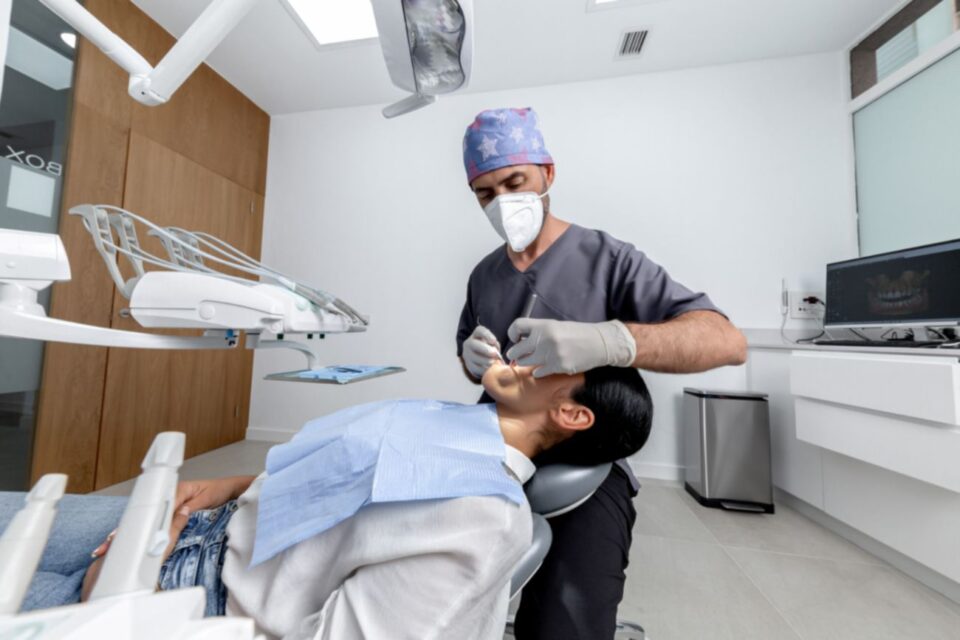Emergency Dental Care: Rapid Relief for Tooth Discomfort and Accidents
Emergency situation dental care is a vital part of keeping dental health, particularly when unforeseen cases occur or severe discomfort occurs. Comprehending the signs that require immediate focus can dramatically affect results, stopping further complications. From acute toothaches to stressful injuries, identifying the necessity of these circumstances is critical. However, several individuals continue to be unpredictable concerning the certain scenarios that necessitate timely treatment. This obscurity usually causes delays in seeking aid, which can worsen the problem at hand. Checking out the usual kinds of dental emergency situations and the proper reactions is important for educated decision-making during these defining moments.
Recognizing Dental Emergency Situations
Oral emergency situations regularly arise without warning, necessitating timely focus to mitigate discomfort and protect against more difficulties. Recognizing the nature of dental emergencies is important for both individuals and doctor to ensure efficient administration. These circumstances can range from severe discomfort and trauma to infections that call for instant intervention.
One key facet of dental emergency situations is acknowledging the signs that need urgent treatment. Signs such as severe toothaches, swelling, or blood loss can indicate underlying concerns that, if left without treatment, may lead to serious wellness issues. Additionally, injury to the mouth, whether from sports injuries or accidents, can trigger damage to teeth and bordering cells, requiring speedy examination and treatment.
Understanding the seriousness and prospective consequences of dental emergencies encourages people to make educated choices, inevitably leading to better outcomes and improved oral wellness (emergency dental edmonton). By prioritizing prompt attention to dental dilemmas, individuals can decrease discomfort and safeguard their overall well-being.
Usual Sorts Of Dental Emergencies
Coming across different kinds of dental emergencies needs an extensive understanding of the conditions that necessitate immediate care. Usual oral emergency situations can substantially influence a person's dental health and wellness and general wellness.
One common type is a toothache, which may arise from abscess, gum, or decay condition. Severe pain frequently indicates an underlying issue that requires punctual intervention. Another usual emergency is a broken or chipped tooth, typically triggered by trauma or excessive pressure. This can result in sensitivity and a raised danger of infection.
Knocked-out teeth stand for an essential emergency, where prompt action is vital for prospective reimplantation. Conservation of the tooth in an appropriate tool, such as milk or saline, is necessary while seeking specialist help.
In addition, dental abscesses, identified by localized infection, existing as swelling and pain. These need immediate treatment to avoid the spread of infection.
Last but not least, soft tissue injuries, consisting of cuts or lacerations to the periodontals, cheeks, or tongue, can additionally require emergency treatment. Dealing with these problems swiftly is vital in reducing issues and making certain optimal dental wellness.
When to Seek Immediate Care

Accidents causing dental trauma-- such as a knocked-out tooth, fractured or damaged teeth, or injuries to the periodontals-- demand prompt treatment (emergency dental edmonton). When it comes to a knocked-out tooth, time is of the essence; it must be reinserted or saved in milk or saline and taken to the dentist helpful resources within an hour for the ideal possibility of successful reattachment
In addition, extended bleeding from the mouth or any kind of dental lacerations that do not stop might represent a more serious problem needing immediate treatment. Dental swelling, especially if it affects breathing or swallowing, is another warning. On the whole, if you experience any unexpected modifications in your oral health or physical discomfort that intensifies quickly, look for prompt oral like reduce prospective problems and guarantee your wellness.
Taking Care Of Discomfort in the house
Reliable administration of oral pain in your home can significantly minimize discomfort while waiting for specialist treatment. A number of approaches can be utilized to attend to discomfort and decrease swelling successfully.
Non-prescription analgesics, such as ibuprofen or acetaminophen, can offer short-term relief. Be sure to comply with dosage directions on the packaging to avoid adverse impacts. Using a chilly compress to the beyond the cheek can additionally assist numb the location and lessen swelling. This method is particularly effective within the very first 24 hr complying with an injury or start of pain.
Additionally, keeping oral health is essential. Carefully rinsing the mouth with warm salt water can assist lower and cleanse the afflicted area irritation. Clove oil, known for its natural analgesic properties, can be applied moderately to the gum tissue area making use of a cotton ball for local alleviation.
Avoiding specific foods-- such as those that are hard, crunchy, or incredibly warm or cool-- can stop worsening of discomfort. Finally, ensuring ample hydration and visit our website rest will support general recuperation while waiting for specialist dental treatment. These natural remedy can offer a significant degree of alleviation till a dental expert can be sought advice from.

What to Anticipate at the Dentist
A see to the dental professional can frequently give anxiety, however understanding what to expect can relieve worries and help with a smoother experience. Upon arrival, you will commonly sign in at the function, where you might need to complete forms regarding your case history and oral problems. Following this, an oral aide will certainly lead you to the exam area and take essential radiographs, if appropriate.
When settled, the dental expert will perform a detailed assessment of your teeth and gums. If you are experiencing pain or discomfort, make sure to connect this plainly, as it will assist the dentist tailor the exam to your demands. Depending on the findings, they might recommend therapies, which can entail loading tooth cavities, performing removals, or various other treatments.
Throughout any type of treatment, anticipate to receive neighborhood anesthesia to reduce pain. The dentist will certainly describe each action of the process, ensuring you feel notified and comfy. After the procedure, the oral team will supply aftercare instructions to help manage your healing efficiently. Remember, open communication with your dentist is essential to making certain a favorable experience and accomplishing ideal oral health and wellness.
Verdict
In verdict, emergency dental treatment plays a crucial role in reducing tooth pain and resolving urgent oral issues. Individuals are encouraged to familiarize themselves with reliable pain administration methods at home, while likewise being prepared for the treatments that might be undertaken by dental specialists throughout emergency situations.
Emergency oral care is an essential element of preserving oral health, especially when unforeseen cases occur or severe pain occurs.Dental emergencies often arise without warning, necessitating punctual focus to reduce pain and avoid additional complications.In final thought, emergency dental treatment plays a critical duty in relieving tooth pain and addressing immediate oral problems. Identifying the signs of oral emergency situations and recognizing when to seek instant care can dramatically influence oral health and wellness results. Individuals are encouraged to familiarize themselves with reliable discomfort administration approaches at home, while also being prepared for the procedures that might be carried out by oral experts during emergencies.